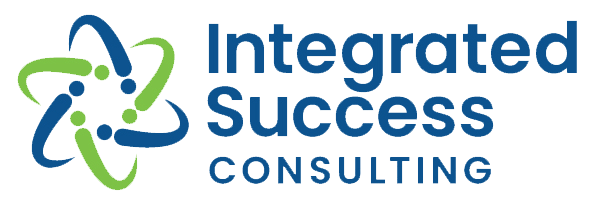Imagine showing up for work on your first day, ready to meet your colleagues and get started. You’re greeted warmly and escorted to your office and told to settle in. That’s when you realize you have no phone, no computer, no one available and no idea how to access the IT network or your email. You’re apparently expected to orient yourself, with absolutely no guidance or equipment. You thought your new employer was excited for you to jump in and make an impact, but instead they seemed to have forgotten you exist.
This scenario actually happened to someone I know. The sense of disconnection established on that first day resonated throughout their time at the organization, and you won’t be surprised to learn they didn’t stay all that long. They were lacking a sense of belonging, so fundamental to human success that it ranks number three on Maslow’s hierarchy of needs. Belonging is a critical element in today’s workplace, closely intertwined with trust, compassion, stability and hope.
Belonging lets people access their full potential.
A sense of belonging starts on day one and is either reinforced or diminished every day thereafter. Without belonging, people often feel like outsiders, even interlopers. If they aren’t welcomed into the culture, people can learn over time that their voice doesn’t get heard, that their efforts aren’t valued. Exclusion can be so intense it can even feel like an antagonistic environment. The fight, flight or freeze stress response is triggered and eventually people can stop contributing, add to the dysfunction or leave the organization altogether. Even Oprah once quit a prestigious job because she didn’t feel accepted for who she was.
But when people feel safe, valued, happy and respected for who they are, they can harness their full potential — including the ability to connect with others, think critically and creatively, and be open to others’ perspectives. Neuroscience bears this out. Imagine how much impact individuals can have on your organization’s goals when they are able to fully bring these qualities to the table.
Creating a sense of belonging is a powerful way for leaders to pull people together toward the same goals. When people feel they belong at your organization, they contribute more to team accomplishments; they find fulfillment and purpose in their work. Belonging gives people a feeling of responsibility for the outcome, so they encourage their colleagues to engage more deeply with your organization’s mission.
Why your business needs employees who feel connected.
A welcoming and inclusive culture makes your employees feel comfortable and confident and they, in turn, increase your organization’s overall success: Fully engaged people are more productive, team decisions have better outcomes, business results are stronger and you become a preferred employer that attracts the best employees.
Align and shine. When employees align their personal values with your organization’s mission, their passion and purpose can drive them to reach ever greater levels of achievement and personal fulfillment. But this can only happen if your organization allows people’s full authentic character to shine at work. As social science researcher Brené Brown puts it, “true belonging doesn’t require you to change who you are, it requires you to be who you are.”
Walk your diversity talk. Yes, diversity can have positive effects on your company’s financial bottom line, but only if your inclusion policies and practices are sincere and effective. Belonging is created in the day-to-day interactions of people, and the behavior of individual employees can make or break your desired workplace culture. The most progressive hiring practices will never overcome gossipy cliques and unsupportive colleagues.
Collaborate to innovate. Research shows that more diverse work groups produce better outcomes for the complex circumstances we all face today. Effective collaboration and teamwork are critical for innovation and success. An overarching desire for the team to succeed together and a commitment to have each other’s backs are built through bonding experiences.
Five tips for increasing employees’ sense of belonging.
Incorporate these five leadership practices to encourage belonging at your workplace:
1. Foster trusting, encouraging relationships.
Be open, be kind and clear, offer support, and celebrate their successes and wins rather than just pointing out areas needing improvement. Interact with each person regularly and warmly. Keep your commitments for check-in meetings.
2. Show people how they contribute to the organization’s success.
Make connections between jobs and mission, hold town hall meetings, tell success stories that highlight desired actions, share responsibility and delegate authority. Recognize people the way they want to be recognized. (Don’t know? Just ask each person, personally.)
3. Make time for social bonding.
Create regular opportunities for everyone (including senior leaders and remote staff) to get to know each other and make connections. (One way to build this bond with remote staff is taking a virtual coffee break together via Zoom or Skype. Get creative!)
4. Get serious about inclusivity and diversity.
Make respect a priority, hold team members accountable for inclusive behaviors, teach people how to see, value and leverage everyone’s strengths for team success.
5. Operationalize your values.
Make sure your practices and day-to-day actions align with those great organizational values posted on the wall and in the employee handbook. Use effective onboarding programs to establish a shared vision, set common expectations for inclusive behaviors, and make everyone responsible for a positive workplace culture.
Connect to your own authentic leadership style.
You are moving into next-level leadership practices when you commit to intentionally creating a culture of belonging. It takes purposeful diligence and self-awareness. Done well, it leads to tangible business improvements and positive impact on the lives of those you lead.
As a leadership coach, I can help you create an environment that nurtures belonging. Together, we will discover how your unique qualities and strengths contribute to building a nurturing environment, as well as your own sense of purpose at work.
At Integrated Success, we work directly with leaders and teams to create a customized approach that builds on individuals’ strengths to create a vibrant, inclusive and engaged workplace. Contact me today so we can talk in depth about your leadership goals.

